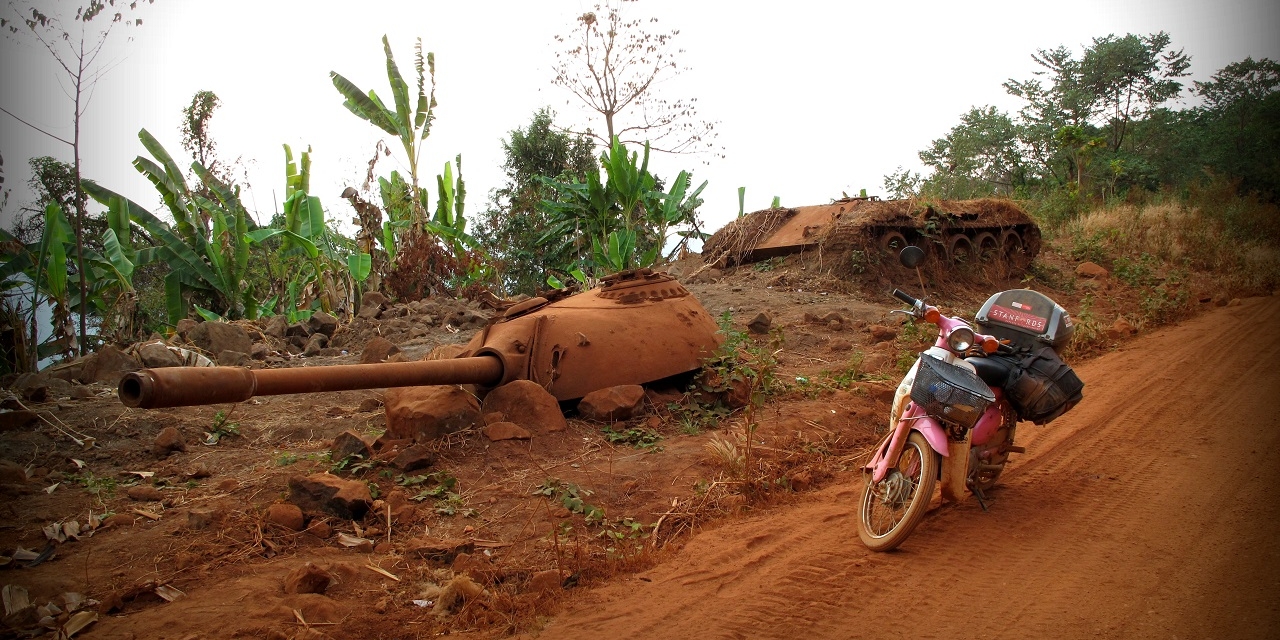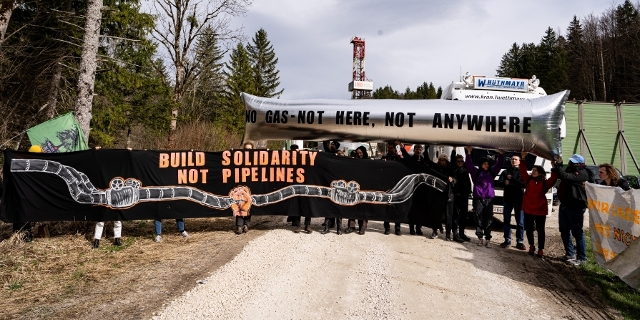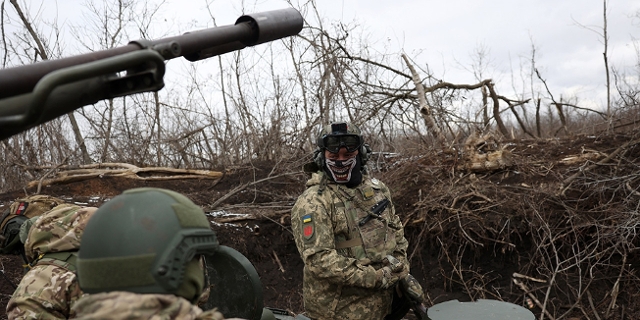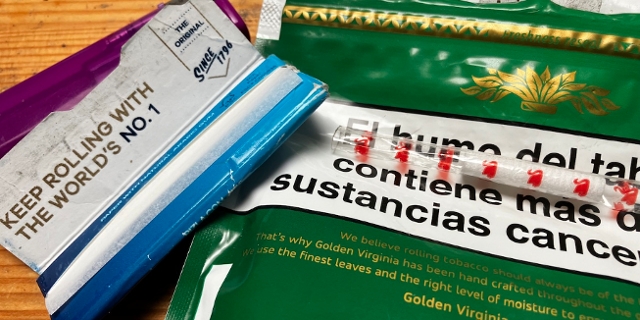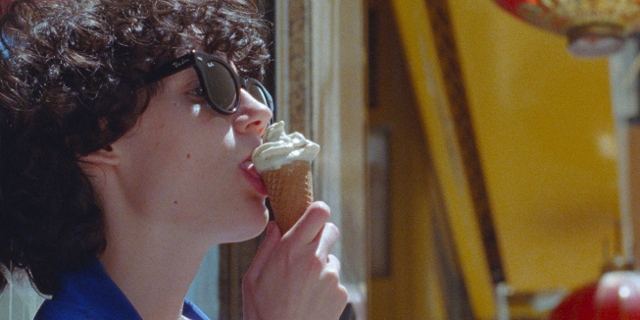Tuk-Tuks, Shamans and Whisky
Antonia Bolingbroke-Kent’s home in Bristol fulfilled all my expectations of how an adventurer’s home should look.
FM4 Adventurous
diesmal mit Antonia Bolingbroke-Kent im Gespräch mit Chris Cummins, 1.8.2019, Mitternacht, auf Radio FM4
It’s in St Werburgh’s, an alternative part of Bristol where you’ll find regular flea-markets and down-at-heel camper vans parked in the crooked streets; and her kitchen wall is plastered with a giant world map from Stanfords of London. As Antonia and I drank cups of tea with hemp-milk, her boyfriend Marley was busy outside on the patio making papier-mâché camels. Naturally.
„Tribal, Mountainous, Extreme“
Her latest adventure had taken her to a place I have to admit I’d never heard of until I picked up her book „The Land of The Dawn-Lit Mountains“.
The title is a literal translation of the name of a mountainous Indian province called Arunachal Pradesh. Nestled up against the borders of Tibet, Bhutan, Burma and Bangladesh. It’s a land of dense and steamy jungle which is notorious for snakes and leeches, but also of high-mountain passes that are cut off by snow for many months of the year.
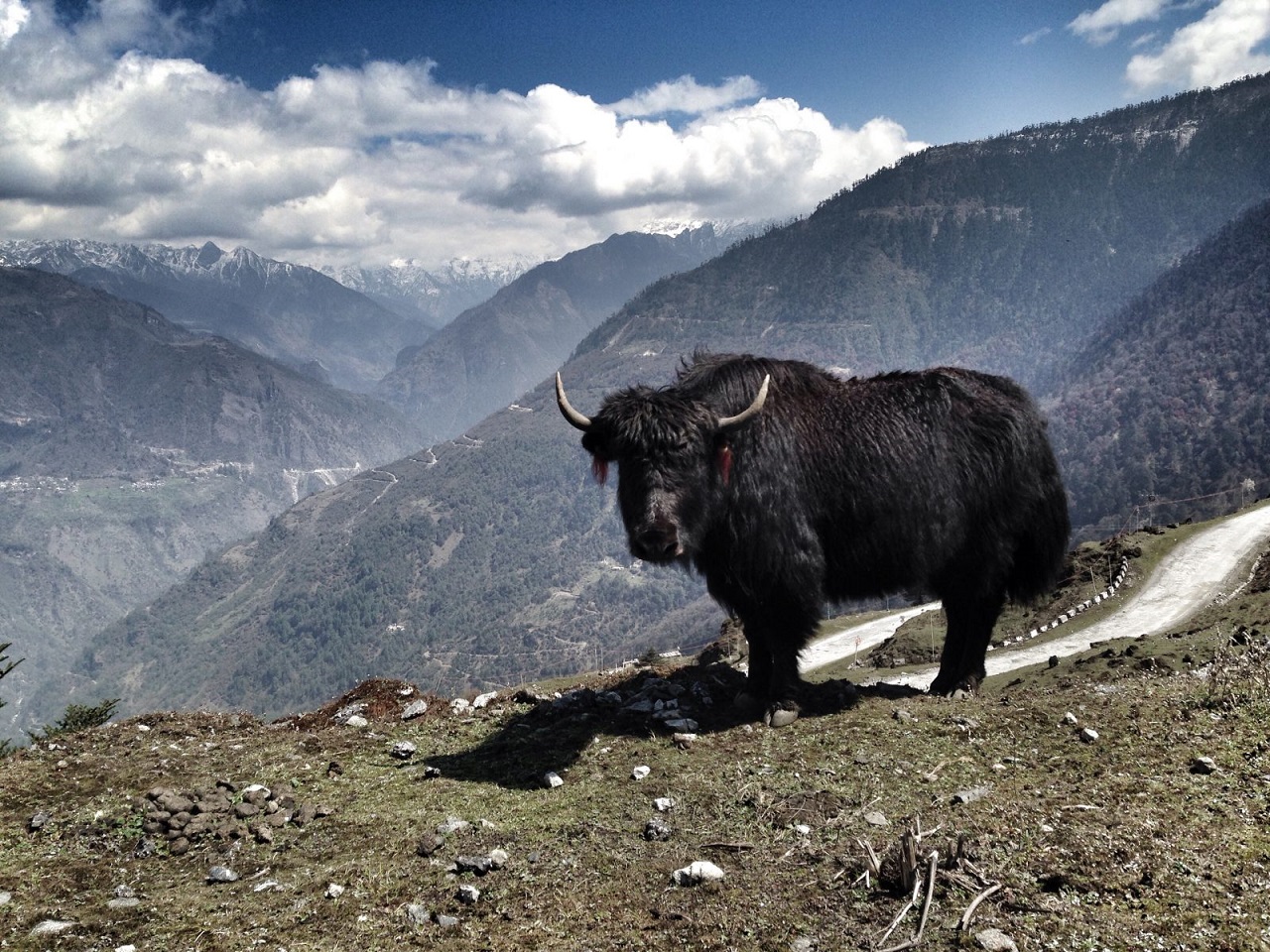
Antonia Bolingbroke Kent
“It’s this bizarre geographical cul-de-sac,” explained Antonia as we sipped our tea, “and it is completely different from the rest of the Subcontinent. If you think you know India, think again. It’s tribal, it’s mountainous, it is very extreme, it’s one of the wettest places on Earth, it’s a whole different ball game.”
A Place At The Edge of The Map
As well as the challenges of weather and topography, there are political problems too. On-going border tensions with China and several separatist insurgencies meant it was closed-off for foreigners until the end of the 20th Century. Even now you need a complicated series of permits to visit.
Therefore it has remained one of the least developed areas of India with poorly built roads made worse by regular landslides and the wet weather. As a lone traveller, Antonia could not have chosen a more difficult destination both physically and bureaucratically. And yet she felt in her element:
“What made me want to go there is that I’m irresistibly drawn to these places at the edge of the map,” she told me. “These places that are still untrammelled; where there are still lots of stories to tell, where there is still mystery.”
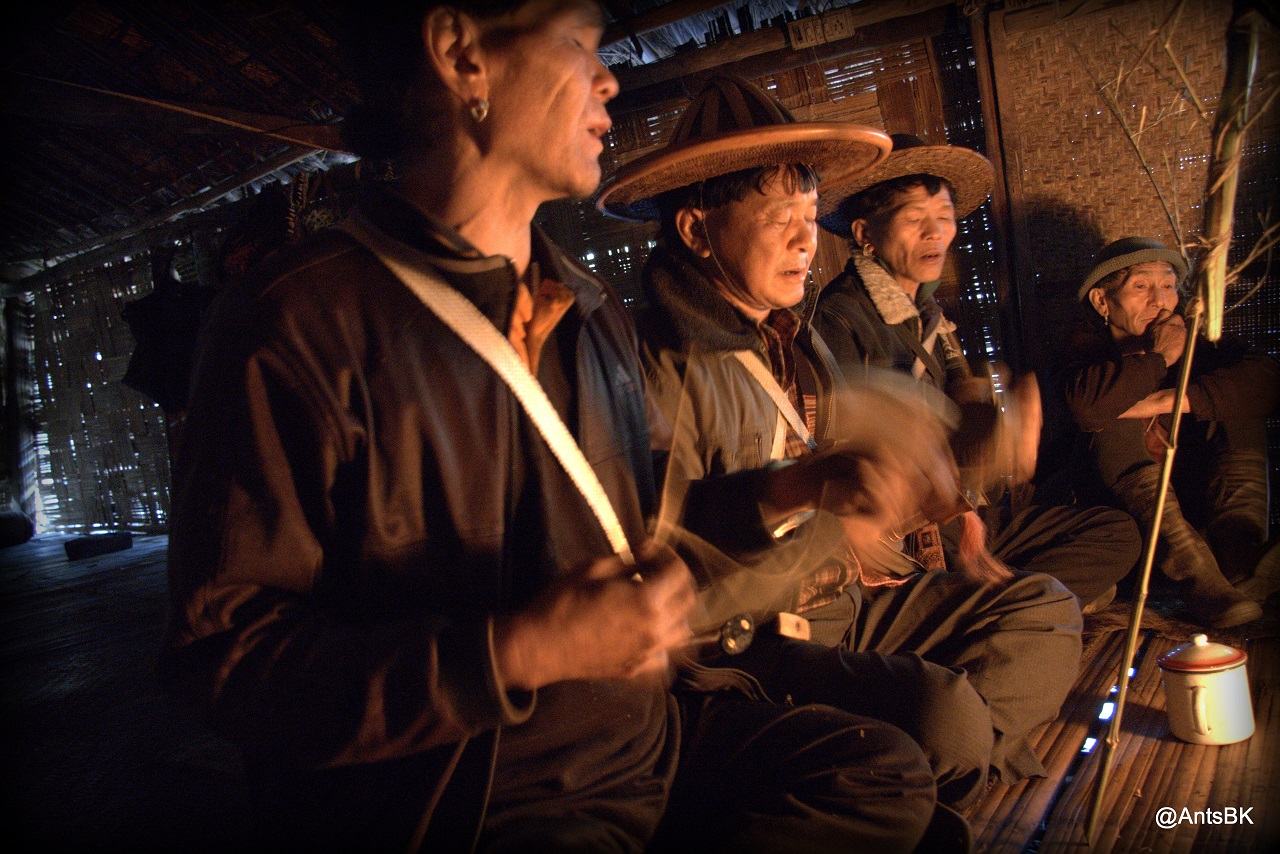
Antonia Bolingbroke Kent
Whisky and Wellington Boots
So, placing her fate in the trust of local guides or sometimes travelling totally alone, she made her way through the treacherous but awe-inspiring mist-swept landscapes on a motorbike, carrying a bottle or two of whisky clinking in her luggage.
These libations were always useful to ward off the cold; as well as to swig with the locals who offered up their simple homes as a night’s lodging.
This, as well her refusal to be deterred from exploring off-limit areas, makes Antonia Bolingbroke-Kent seem like a real-life Indiana Jones figure. Hard-drinking, caked in mud and intrepid – a Hemingway hero in Gore-Tex.
A Mix of Fear, Adrenaline and Excitement
That’s why it is touching how openly she discusses her human frailties. “I love doing these journeys more than anything. It is when I feel most alive, connected and stimulated. I feel like my best version of myself” she told me. “But setting off on those journeys I am shit-scared. I always am at the beginning. It’s this heady mix of fear and adrenaline and excitement.”
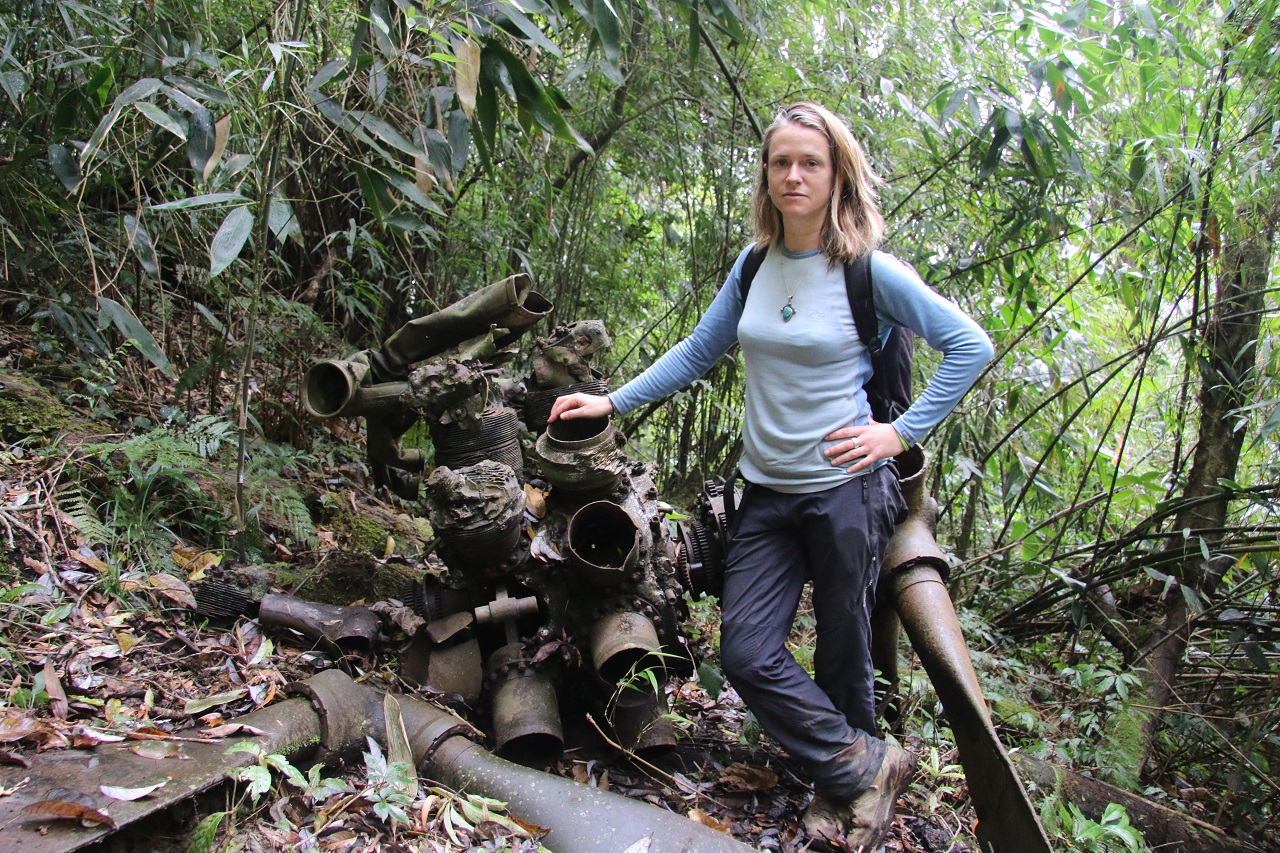
Antonia Bolingbroke Kent
Antonia with the ruins of a crashed World War II plane in Arunachal Pradesh
This trip to Arunachal Pradesh had been particularly important to her. In the months before the journey, stressed by the pressures of everyday life, she had suffered crippling bouts of panic attacks. After years of pioneering travel, she’d found herself almost confined to her Bristol home for six months, not even daring a solo trip to London without the company of her boyfriend Marley. “It feels like a black comedy looking back now,” she says. “I was pretty much hanging around his ankles.”
„Walking Away From The Past“
So, while she was embarking on the journey to Arunachal Pradesh, perhaps her most arduous and riskiest destination to date, she was still in the process of rediscovering herself. When she realized she was feeling herself again, on a hike to some remote villages of the animist Idu Mishmi tribe near the Tibetan border, it provides the most moving passage of her book about the journey.
“I was elated to be walking into the unknown, towards Tibet, my rucksack clanking with whiskey and rum. But there was something else, too. It was as if every joyous stride was sloughing off the last remnants of an unwanted skin. I wasn’t just walking towards the last Idu houses, I felt as if I was walking away from the past and into a brighter future… that I had been restored to the essence of who I was by the Idu and their hills.”
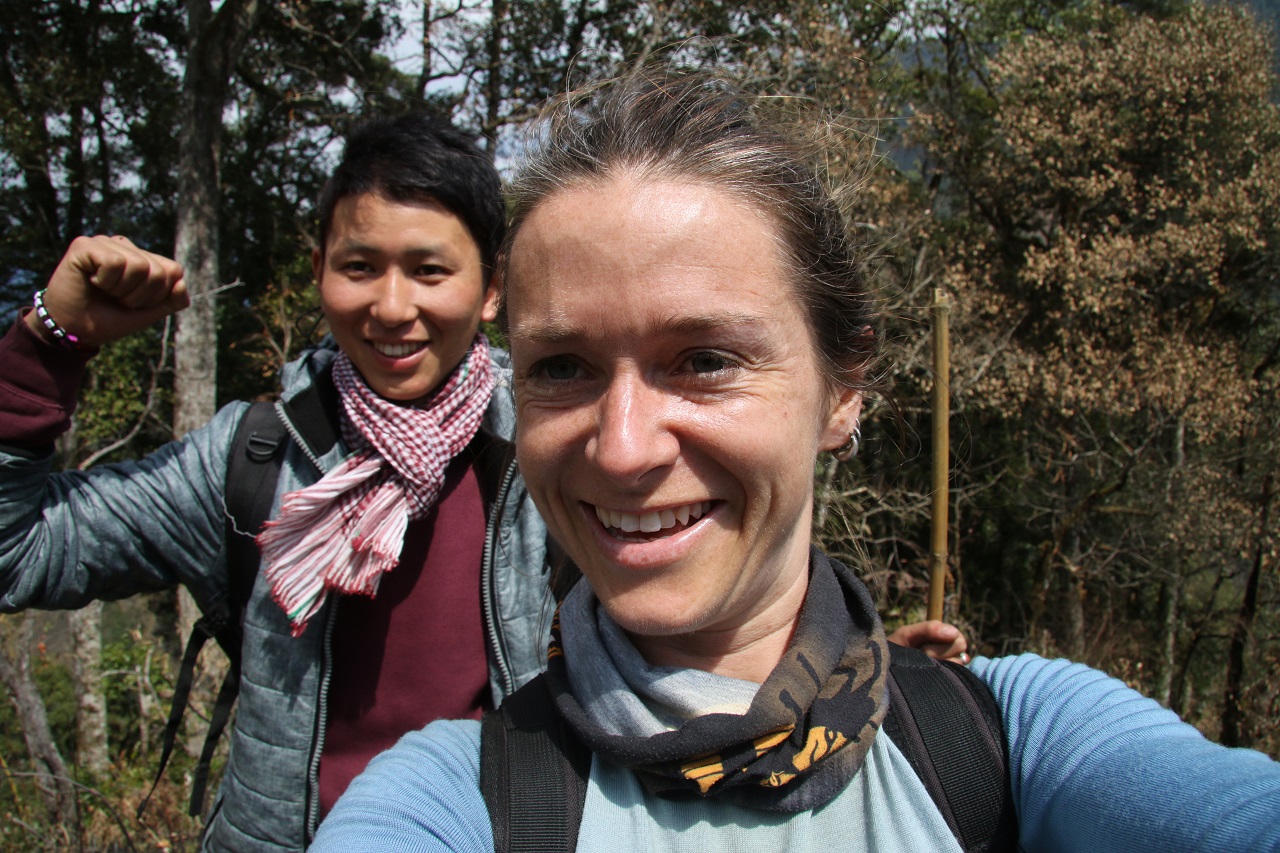
Antonia Bolingbroke Kent
A Pink Tuk-Tuk
It was, in fact, a bout of mental illness that had launched Antonia’s life of adventure, when she was in her mid-20s and working as a TV producer. Her best friend from school, Jo, had suffered a psychological crisis and, to celebrate getting better, called up Antonia and suggested a plan. She wanted to drive a tuk-tuk, designed for short urban trips, all the way from Bangkok to London. Was Jo really better?
“Weirdly, I never had any doubts about the trip,” laughs Antonia, “even though it seemed like this huge thing and we couldn’t imagine how we’d make it happen, both Jo and I had this innate confidence that it was possible.”
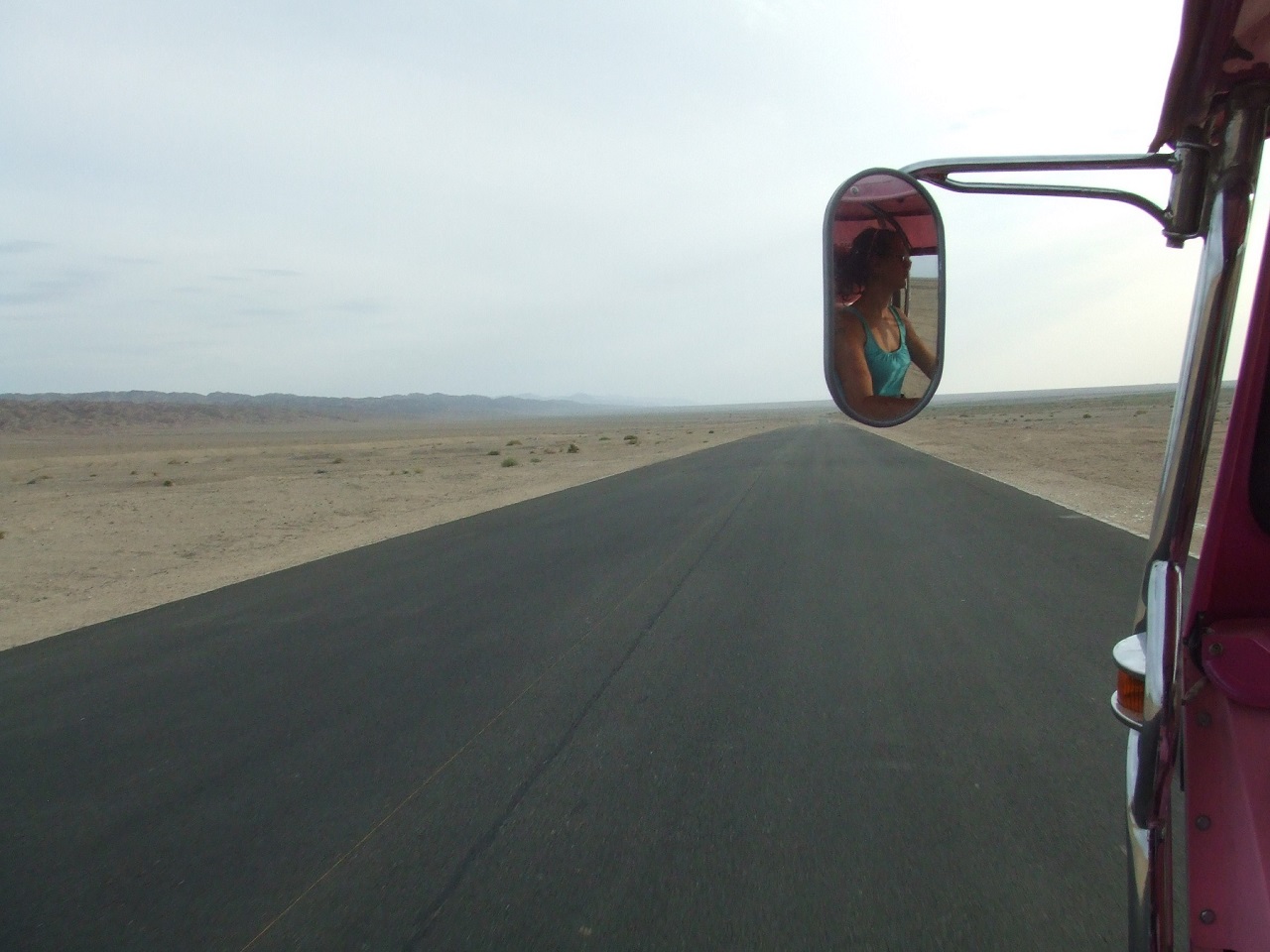
Antonia Bolingbroke Kent
What followed was a 20,000km trip in a bright pink tuk-tuk that they christened Ting-Tong. It took them through 12 countries and it raised £50,000 for Mind, the mental health charity and became a beautiful story of friendship and joyous freedom. They had to travel on the backroads of China, on muddy farm-tracks and wherever they neared a village they caused pandemonium. “People just had no idea what the hell was going on,” she remembers.
The Kindness of Strangers
“They’d drop whatever they were carrying and stared at us wondering if we were some apparition from space.”
Perhaps the biggest lesson was not to listen to the nay-sayers. They were warned that they’d be harassed, robbed or ripped off at the Kazak border and have their tuk-tuk impounded. As they rode through the Taklamakan Desert towards the border they suffered sleepless nights, fearing the hostile reception. When they got there the border guards waved the two young women through, gave them money for their charity, bought them ice-cream and cold drinks.
It’s a classic traveller’s discovery: There’s more kindness out there than cable news would allow us to believe
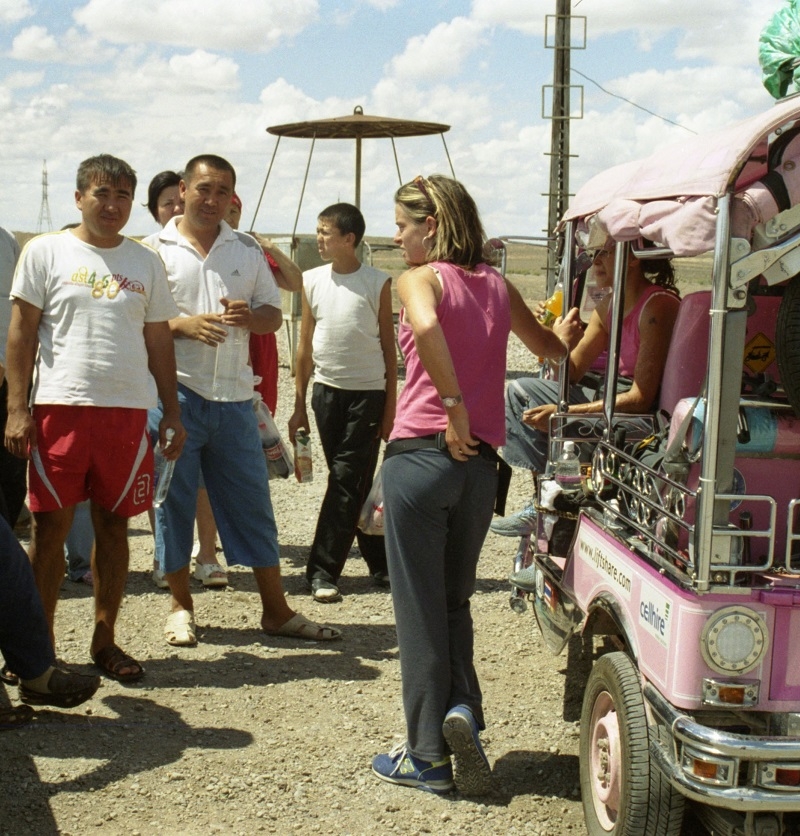
Antonia Bolingbroke Kent
I’d wanted to speak to Antonia since, while on a trip to Vietnam, I read her book A Short Ride In The Jungle. It’s a vivid account of her ride on a clapped-out motorbike (again painted pink!) down the Ho Chi Minh Trail which leads several thousand jungle-twisted kilometres through Vietnam, Laos and Cambodia. With great empathy, she described the distressing ongoing legacy of the 600,000 bombing missions.
A Living Legacy
“It’s 50 years since the last bombs dropped but still this area is so heavily affected by the war,” she told me, when I reminded her of the trip. “There are bombed-out trucks everywhere, there are whole villages built out of war scraps, there are crashed aeroplanes, there are cluster bombs still everywhere.” You’ll still meet farmers who complain of their cows being blown up.
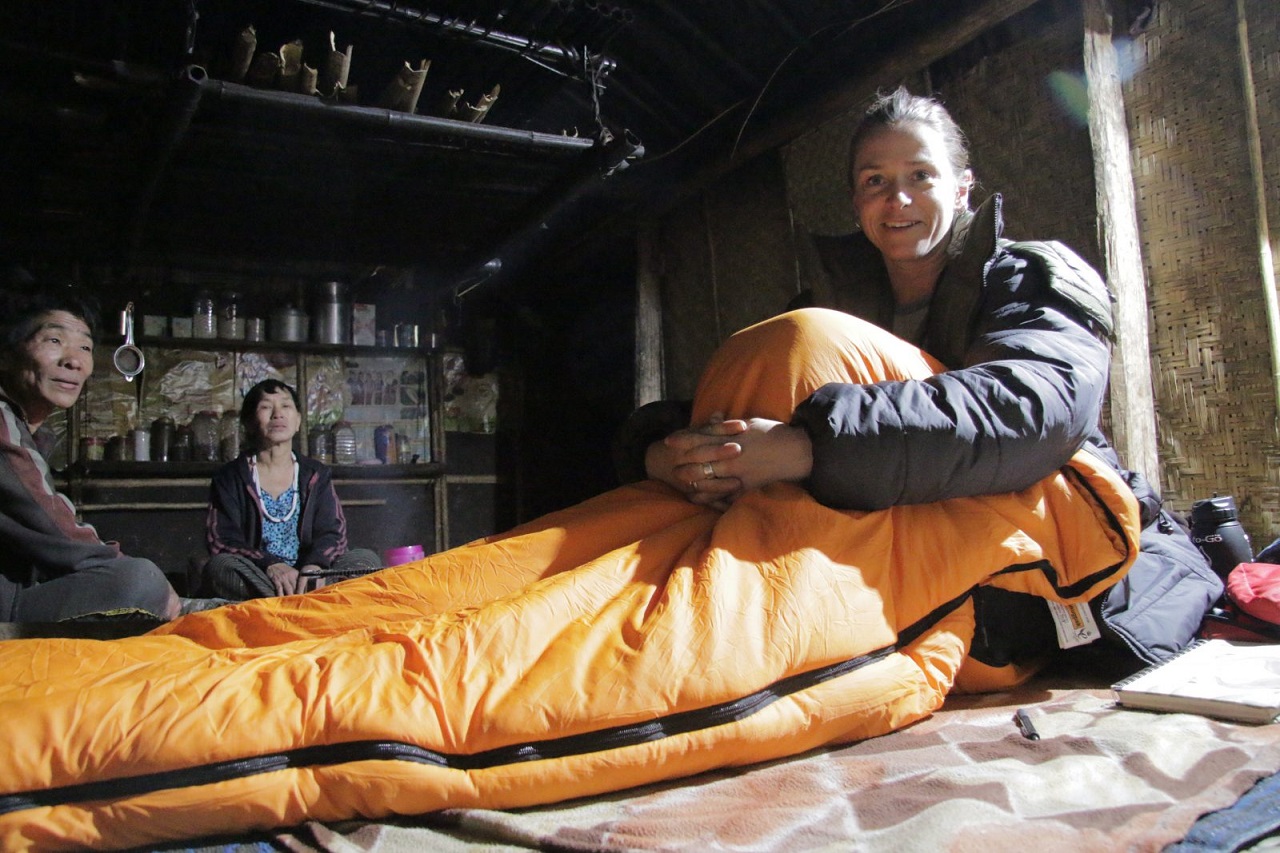
Antonia Bolingbroke Kent
Indeed, Antonia almost became a belated victim of the war herself, when in a moment of excitement at spotting a relic of war, she and a companion briefly ignored safety advice and left the marked path.
“We were walking through the jungle on this tiny little track, when suddenly the guy in front yelled to stop,” she remembers. “We looked down and there was a cluster bomb, which looks like a tiny rusty tennis ball, right in front of his foot. And if he had trodden on that we would have all been dead.”
„There’s So Much Left to Explore“
She survived to plot more trips and scoffs when I suggest she one day hang up her adventure boots: “I bloody hope not! There’s so much of the world left to explore and I don’t think I’ll ever stop being curious.”
Her house is littered with text books; many about her heroine and subject of her next research trip Ursula Graham Bower, pioneer anthropologist turned guerrilla commando who lived among the indigenous communities of the Naga Hills in the 1930s and 1940s.
It seems an enviable life, roaming the world and sating your curiosity in exotic places. Does she have any advice? “My driving force, ever since I was a teenager, has been that I have never been motivated by money. I’ve always just wanted to have an interesting life and see as much of the world as possible. To do this sort of thing you have to be prepared to bump along with no money in your bank account and hope that it is all just going to work out.”
Publiziert am 31.07.2019







